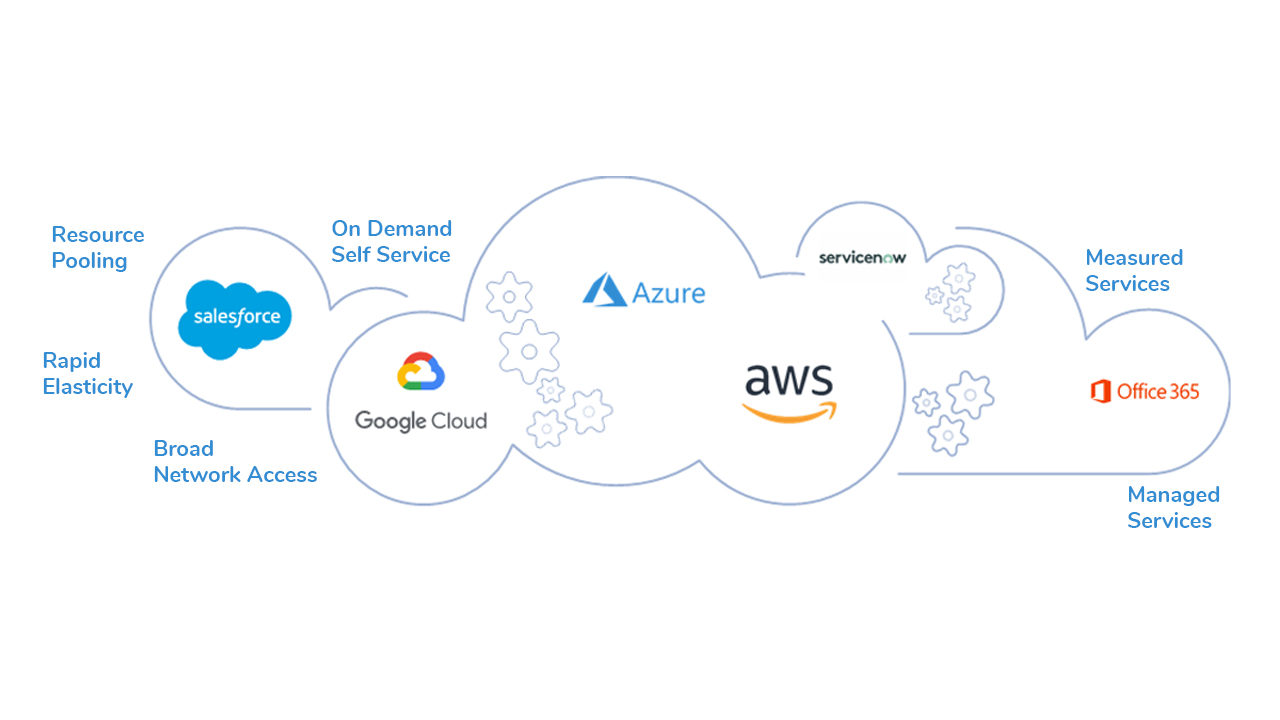Boost Your Online Presence with LinkDaddy Cloud Services: Efficient Methods for Cloud Services Press Release
Boost Your Online Presence with LinkDaddy Cloud Services: Efficient Methods for Cloud Services Press Release
Blog Article
Simplify Your Facilities With Cloud Provider
As organizations navigate the ever-evolving landscape of technology and information management, the function of cloud solutions in simplifying facilities has actually come to be progressively prominent. Exactly how can businesses successfully browse this transition and really open the possibility of cloud services for simplifying their framework?
Benefits of Cloud Solutions
Cloud solutions use a streamlined approach to managing IT infrastructure, offering services with flexibility, scalability, and cost-efficiency. One of the crucial advantages of cloud services is the scalability they provide. Services can quickly scale their sources up or down based on demand, ensuring they only spend for what they make use of. This adaptability is specifically useful for organizations with rising and fall demands or those experiencing development.
In addition, cloud solutions eliminate the need for services to purchase costly hardware and software. This cost-efficiency is a significant benefit, specifically for tiny to medium-sized ventures looking to decrease ahead of time prices. By utilizing cloud solutions, companies can access premium IT sources without the large cost tag connected with traditional framework setups.
Additionally, cloud solutions provide companies with the adaptability to access their data and applications from anywhere with an internet link. This degree of accessibility improves cooperation amongst teams, enables remote work, and boosts total productivity. The versatility used by cloud solutions encourages businesses to adapt rapidly to transforming market problems and consumer needs.
Cost Financial Savings and Scalability
In enhancement to the operational benefits highlighted earlier, the integration of cloud services right into a firm's framework produces considerable expense savings and improved scalability. Cloud services provide a pay-as-you-go design, enabling services to range sources up or down based upon current requirements, consequently staying clear of the prices linked with keeping excess ability. This flexibility allows companies to adapt quickly to varying needs without incurring unnecessary expenses.
Moreover, cloud solutions remove the requirement for in advance financial investments in software and hardware, reducing capital investment. Operating expenditures are likewise reduced as companies no more require to manage and maintain physical web servers, resulting in lower power usage and IT staffing costs. In addition, cloud solutions offer automatic updates and upkeep, making sure that the infrastructure continues to be secure and current without calling for hands-on interventions.
Boosted Protection Procedures
Implementing strict protection steps is extremely important when integrating cloud services into a business's framework to protect delicate data and make certain conformity with market policies. Cloud service providers supply enhanced safety and security features such as information security, firewall software security, and multi-factor authentication to minimize cybersecurity dangers.
Additionally, regular protection audits and compliance assessments aid determine vulnerabilities and make certain adherence to market standards. Firms can likewise gain from functions like automated protection updates and real-time danger monitoring given by cloud provider. By focusing on safety and security steps and staying aggressive in attending to prospective risks, businesses can confidently utilize cloud solutions while shielding their important data from unapproved gain access to or breaches.
Transitioning to Cloud Infrastructure
To successfully integrate cloud services into a company's facilities, a structured technique that resolves the change in the direction of cloud-based solutions is critical. Transitioning to shadow infrastructure involves careful planning and execution to ensure a smooth migration process - Cloud Services.
Once the assessment is complete, next page a migration strategy should be developed. This strategy should lay out the timeline, sources, and duties for relocating each element to the cloud. It is necessary to connect this plan clearly to all stakeholders to ensure placement and decrease description disturbances during the shift.
During the migration monitoring, screening and process are crucial to recognize and attend to any type of issues without delay. Normal checkpoints ought to be developed to track development and make required changes. Furthermore, training for employees on making use of cloud services should be supplied to guarantee an effective shift and make best use of the benefits of the brand-new facilities.
Ideal Practices for Cloud Adoption
Effective adoption of cloud solutions hinges on the critical alignment of organization objectives with technical capabilities and business preparedness. To guarantee a smooth change to the cloud, organizations need to start by performing an extensive analysis of their current framework and determining which work are best suited for cloud movement. It is crucial to include vital stakeholders from different departments in the decision-making procedure to gain buy-in and attend to any kind of issues beforehand.
One more ideal practice for cloud adoption is to focus on protection and compliance. Organizations has to very carefully evaluate the protection procedures provided by cloud provider and guarantee that their information is shielded according to sector standards and regulatory demands. Carrying out durable information security, access controls, and routine safety and security audits can assist alleviate dangers connected with go to this site cloud fostering.

Verdict

As services navigate the ever-evolving landscape of technology and information management, the function of cloud solutions in simplifying framework has come to be progressively prominent - Cloud Services. Exactly how can organizations effectively navigate this shift and absolutely unlock the capacity of cloud solutions for simplifying their facilities?
Cloud solutions supply a streamlined method to handling IT infrastructure, offering organizations with scalability, cost-efficiency, and versatility. By making use of cloud services, companies can access high-grade IT resources without the hefty cost tag linked with standard infrastructure setups.
To guarantee a smooth transition to the cloud, companies should begin by carrying out a detailed evaluation of their existing facilities and identifying which workloads are best suited for cloud movement.
Report this page